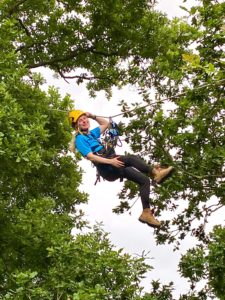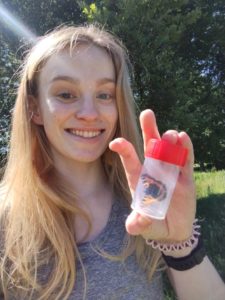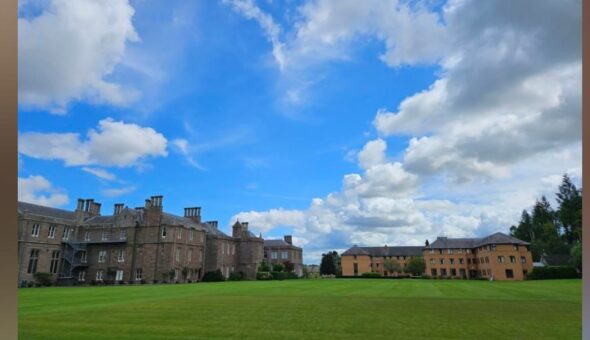As I was approaching the final summer of my degree, I decided I wanted to do something productive which would help me secure a job after I graduated. Through Gold Scholarship STEP training evenings, I learnt about the charity Operation Wallacea, who run carry out ecological research all over the world. One course they were running was a residential course held at the Knepp Estate in West Sussex. This site is the UK's flagship rewilding and regenerative farming project, and has successfully increased numbers of extremely rare species like turtle doves and purple emperor butterflies. Having volunteered at a nature reserve for the past three years as part of my Gold Scholarship, this seemed like the perfect course to continue to further my knowledge of conservation and rewilding in the UK.
I have been lucky enough to have been in receipt of the Gold Scholarship Summer Opportunities Fund before, and was privileged to receive assistance in funding this opportunity too.
The Knepp Estate wildlife project is challenging the conventional approach to nature conservation, by not following specific targets and conserving specific species already present. Instead, they take a hands-off approach, allowing nature to take its course and for new species to establish themselves. Because of this revolutionary approach, the site is of great interest to ecologist and research groups like Operation Wallacea.
I arrived on the first evening and was shown to my tent, which was to be home for the next week. We were fed delicious vegan food, prepared on site by the Estate chefs, had a welcome talk where we learnt about the site and then played cards until we were all tired enough to fall asleep in our tents.
 The next few days were packed full of field surveys, data analysis, coding and lectures, as well as plenty of down time to chat to the scientists and other students. We learnt how to survey invertebrates, mammals, birds and plants and then analyse and present all of the data using R programming. A personal highlight for me was during the bird surveys: I got the opportunity to release one of the birds we had surveyed. We were also taught how to conduct UKHab habitat surveys which is a highly sought-after skill in ecology, as they are newly introduced required surveys which few people are sufficiently experienced in carrying out. An added extra on the course was a Canopy Access course where we were taught how to properly climb trees and between trees to enable us to conduct butterfly and bird surveys in the canopies.
The next few days were packed full of field surveys, data analysis, coding and lectures, as well as plenty of down time to chat to the scientists and other students. We learnt how to survey invertebrates, mammals, birds and plants and then analyse and present all of the data using R programming. A personal highlight for me was during the bird surveys: I got the opportunity to release one of the birds we had surveyed. We were also taught how to conduct UKHab habitat surveys which is a highly sought-after skill in ecology, as they are newly introduced required surveys which few people are sufficiently experienced in carrying out. An added extra on the course was a Canopy Access course where we were taught how to properly climb trees and between trees to enable us to conduct butterfly and bird surveys in the canopies.
Perhaps the most valuable experience I gained on this course was the networking with like-minded students and experienced conservationists. Through conversations with them, I gained valuable insight into the available ecology and environmental jobs and received useful advice about the future.
If you’re interested in conservation and the environment, I’d highly recommend joining Operation Wallacea on one of their residential courses. Or even just start volunteering at your local nature reserve like I did, to gain some new skills and make useful connections.
Responses


This sounds really cool Emily! Glad you’ve been making the most of the GSP Opportunity fund.